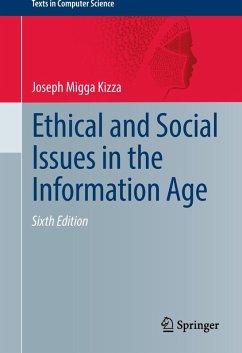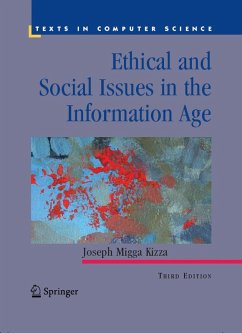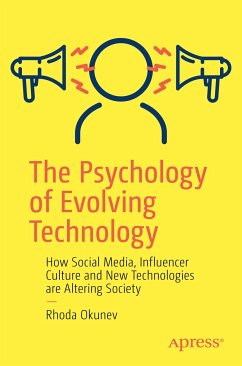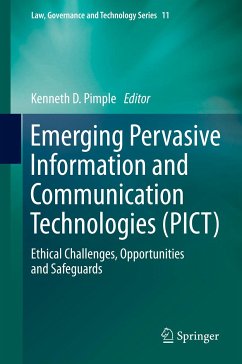
Ethics in Cyberspace (eBook, PDF)
How Cyberspace May Influence Interpersonal Interaction
Versandkostenfrei!
Sofort per Download lieferbar
72,95 €
inkl. MwSt.
Weitere Ausgaben:

PAYBACK Punkte
36 °P sammeln!
Over the last few decades information and communication technology has come to play an increasingly prominent role in our dealings with other people. Computers, in particular, have made available a host of new ways of interacting, which we have increasingly made use of. In the wake of this development a number of ethical questions have been raised and debated. Ethics in Cyberspace focuses on the consequences for ethical agency of mediating interaction by means of computers, seeking to clarify how the conditions of certain kinds of interaction in cyberspace (for example, in chat-rooms and virtu...
Over the last few decades information and communication technology has come to play an increasingly prominent role in our dealings with other people. Computers, in particular, have made available a host of new ways of interacting, which we have increasingly made use of. In the wake of this development a number of ethical questions have been raised and debated. Ethics in Cyberspace focuses on the consequences for ethical agency of mediating interaction by means of computers, seeking to clarify how the conditions of certain kinds of interaction in cyberspace (for example, in chat-rooms and virtual worlds) differ from the conditions of interaction face-to-face and how these differences may come to affect the behaviour of interacting agents in terms of ethics.
Dieser Download kann aus rechtlichen Gründen nur mit Rechnungsadresse in A, B, BG, CY, CZ, D, DK, EW, E, FIN, F, GR, HR, H, IRL, I, LT, L, LR, M, NL, PL, P, R, S, SLO, SK ausgeliefert werden.













